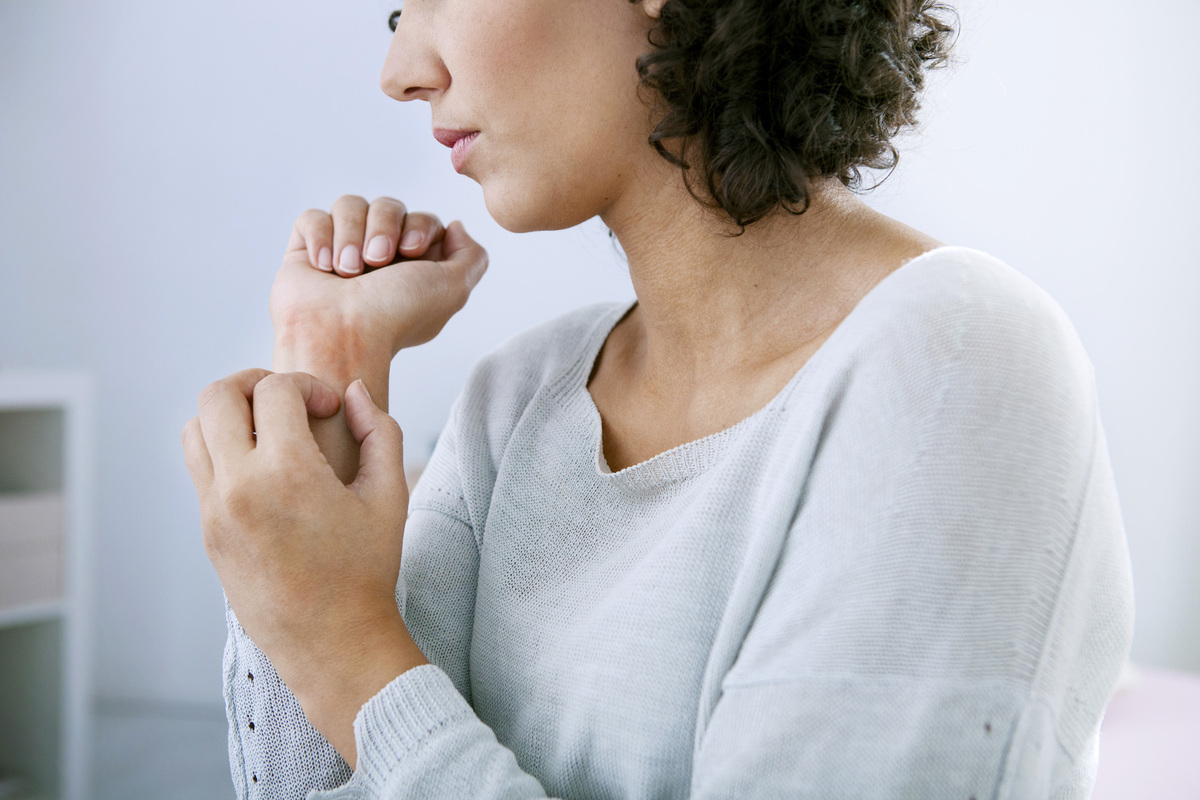Effective Strategies to Stop Eczema Itch at Night

Eczema, also known as atopic dermatitis, is a chronic skin condition characterized by inflamed, itchy, and red patches of skin. For many sufferers, the itchiness can become particularly intense at night, disrupting sleep and affecting overall well-being. This article explores effective strategies to alleviate nighttime eczema itch, helping you achieve a more restful sleep.
Understanding Eczema and Its Nighttime Itch
Eczema is a condition that affects the skin’s barrier function, making it more susceptible to irritants and allergens. The itchiness associated with eczema can be exacerbated at night due to several factors, including increased skin dryness, higher body temperature, and the absence of daytime distractions. Understanding these triggers is the first step in managing nighttime itch effectively.
Moisturize Before Bed
One of the most effective ways to combat nighttime eczema itch is to ensure your skin is well-moisturized. Applying a thick, emollient-rich moisturizer before bed can help lock in moisture and create a protective barrier against irritants. Look for products that are fragrance-free and specifically formulated for sensitive skin. Ingredients like ceramides and hyaluronic acid can be particularly beneficial.
Maintain a Cool Sleeping Environment
A cool sleeping environment can help reduce the itchiness associated with eczema. Keep your bedroom temperature between 60-67°F (15-19°C) and use breathable, natural fabrics for your bedding and sleepwear. Cotton and bamboo are excellent choices as they are soft and less likely to irritate the skin.
Use a Humidifier
Dry air can exacerbate eczema symptoms, making the skin itchier. Using a humidifier in your bedroom can help maintain optimal humidity levels, preventing your skin from drying out. Aim for a humidity level of around 40-60% for the best results.
Take a Lukewarm Bath
Taking a lukewarm bath before bed can help soothe itchy skin and prepare you for a good night’s sleep. Add colloidal oatmeal or baking soda to the bathwater for additional relief. Avoid hot water as it can strip the skin of its natural oils, worsening the itchiness.
Wear Soft, Loose-Fitting Clothing
Tight or rough clothing can irritate eczema-prone skin, especially at night. Opt for soft, loose-fitting pajamas made from natural fibers. Avoid fabrics like wool or synthetic materials that can cause friction and exacerbate itching.
Practice Good Sleep Hygiene
Good sleep hygiene can help improve the quality of your sleep and reduce nighttime itching. Establish a regular sleep schedule, avoid caffeine and electronic devices before bed, and create a calming bedtime routine. Techniques such as deep breathing, meditation, or reading a book can help you relax and prepare for sleep.
Topical Treatments
Over-the-counter topical treatments can provide relief from nighttime eczema itch. Hydrocortisone creams and ointments can help reduce inflammation and itching. However, it’s essential to use these products as directed and consult with a healthcare professional if you have any concerns.
Avoid Triggers
Identifying and avoiding triggers that exacerbate your eczema can help reduce nighttime itching. Common triggers include certain foods, allergens like dust mites and pet dander, and stress. Keeping a diary to track your symptoms and potential triggers can be a helpful tool in managing your condition.
Consult a Healthcare Professional
If your nighttime eczema itch persists despite trying these strategies, it may be time to consult a healthcare professional. A dermatologist can provide personalized advice and may recommend prescription treatments or other interventions to help manage your symptoms effectively.
Nighttime eczema itch can be a significant challenge, but with the right strategies, it is possible to achieve relief and enjoy a restful night’s sleep. By moisturizing regularly, maintaining a cool and humid sleeping environment, wearing soft clothing, and practicing good sleep hygiene, you can effectively manage your symptoms. If necessary, don’t hesitate to seek professional advice to ensure you receive the best possible care for your eczema.



